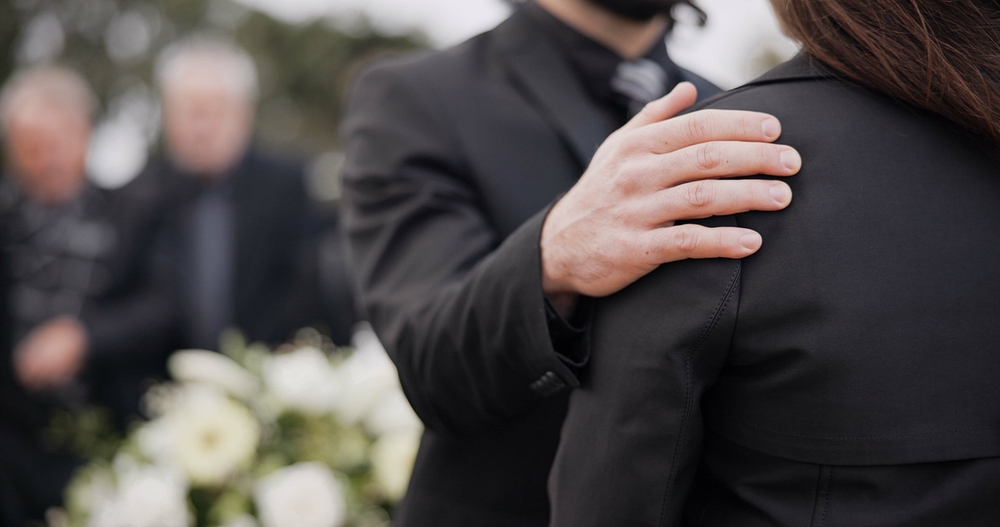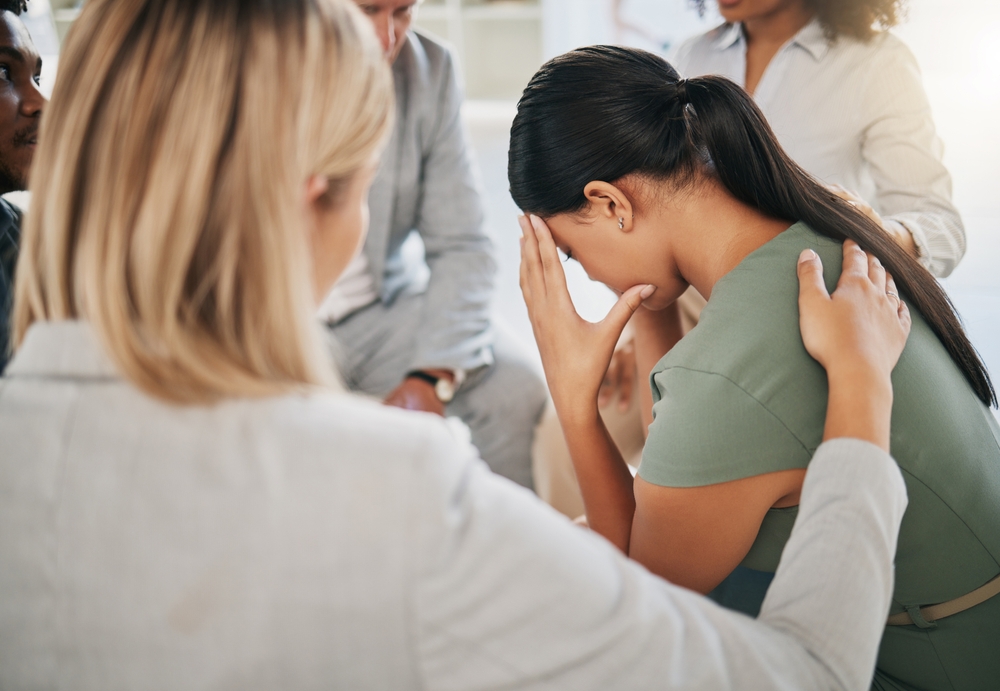Last Updated:
July 21st, 2025
Grief and Addiction | Symptoms and Support Options
What is grief?
Grief is what we experience when we lose something or someone that really matters to us. It might come after a death, a breakup, a big life change or even when things just don’t turn out how we hoped. Grief is not always overwhelming or dramatic. Sometimes, it’s more of a quiet heaviness that sits with us, showing up in everyday moments when we least expect it.
We grieve because we care. When something’s been part of our life, especially for a long time, losing it can leave us feeling off balance. Grief is part of how we figure out what life looks like now. It’s not about forgetting or “moving on” but about slowly adjusting and finding new ways to keep going while still remembering what we lost.
Grief can be messy and sometimes tiring, but it’s also really human.

Are there different types of grief?
Grief isn’t only about feeling sad. It can affect how we think, act, sleep and show up in daily life. And it doesn’t always look the way we expect. While some people might cry or talk about what they’re going through, others may feel numb, distracted or even unusually calm. That’s because grief comes in different forms and each brings its own set of feelings and challenges.
Are there links between grief and addiction?
For those of us who’ve experienced grief, it’s not uncommon to hear about someone turning to alcohol or even stronger drugs to try and cope. At first glance, this might seem like a natural, though unhealthy, response to something traumatic. But the reality is that the connection between grief and addiction runs much deeper and is far more serious than it may first appear.
One of the most concerning findings is the increase in physical and mental health issues following bereavement. For example, research from Finland shows that people who have lost a loved one face a significantly higher risk of dying from alcohol-related diseases. In the United States, one study found that 4% of adolescents who had lost a parent developed an alcohol or drug use disorder, compared to none in the non-bereaved group. Those who were grieving also showed a higher risk of depression.
What makes this link so dangerous is that alcohol and drug misuse can worsen both mental and physical health, becoming a lot more than just coping methods. This means the chances of developing long-term health problems or even dying from natural or unnatural causes increase over time.
This is why it is so important to recognise the warning signs early and seek help if grief begins to take a toll in unexpected ways.
Can grief and addiction be treated in a rehab centre?
Recovering from addiction is never easy, and when grief is part of the picture, it can feel even more complex. That’s why it’s important for treatment approaches to support both the emotional pain of loss and the challenges of substance use. Addressing grief and addiction together can lead to a stronger, more lasting recovery.
Therapies used in rehab
While most treatment centres don’t offer rehab specifically for grief, many of the therapies used in addiction treatment also help people process grief in healthy and constructive ways.
One-to-one counselling and group therapy sessions often explore the underlying causes of addiction, giving individuals space to work through difficult emotions linked to bereavement.
Therapies such as Dialectical Behavioural Therapy (DBT) are especially useful here, as they focus on managing intense emotions, building distress tolerance and helping individuals regulate their responses to overwhelming feelings like loss. This can be a valuable tool in helping someone stay grounded through both grief and recovery.
In addition to talking therapies, holistic treatments like yoga, mindfulness and meditation are often part of the recovery process. These help people reconnect with their bodies and build emotional strength, both of which support grief recovery too.

Aftercare and continued emotional support
Ongoing aftercare, including support groups and check-in sessions, also plays a key role in helping individuals stay on track. Sharing experiences with others who understand can make grief feel less isolating and offer encouragement during tough moments.
What are the next steps?
If you or someone you care about is struggling with addiction and finding it hard to cope with grief, you’re not alone. At Addiction Helper, we can guide you towards treatment options that not only support recovery from addiction but also help you process the pain of loss. Our team is available to listen, advise, and provide you with the right support.
Call us today for confidential advice and take the first step toward healing.
Our compassionate team are ready and available to take your call, and guide you towards lasting the lasting addiction recovery you deserve.
Frequently Asked Questions
(Click here to see works cited)
-
- Drabwell L, Eng J, Stevenson F, King M, Osborn D, Pitman A. Perceptions of the Use of Alcohol and Drugs after Sudden Bereavement by Unnatural Causes: Analysis of Online Qualitative Data. Int J Environ Res Public Health. 2020 Jan 21;17(3):677. doi: 10.3390/ijerph17030677. PMID: 31972984; PMCID: PMC7037803.
- Drabwell L, Eng J, Stevenson F, King M, Osborn D, Pitman A. Perceptions of the Use of Alcohol and Drugs after Sudden Bereavement by Unnatural Causes: Analysis of Online Qualitative Data. Int J Environ Res Public Health. 2020 Jan 21;17(3):677. doi: 10.3390/ijerph17030677. PMID: 31972984; PMCID: PMC7037803.

